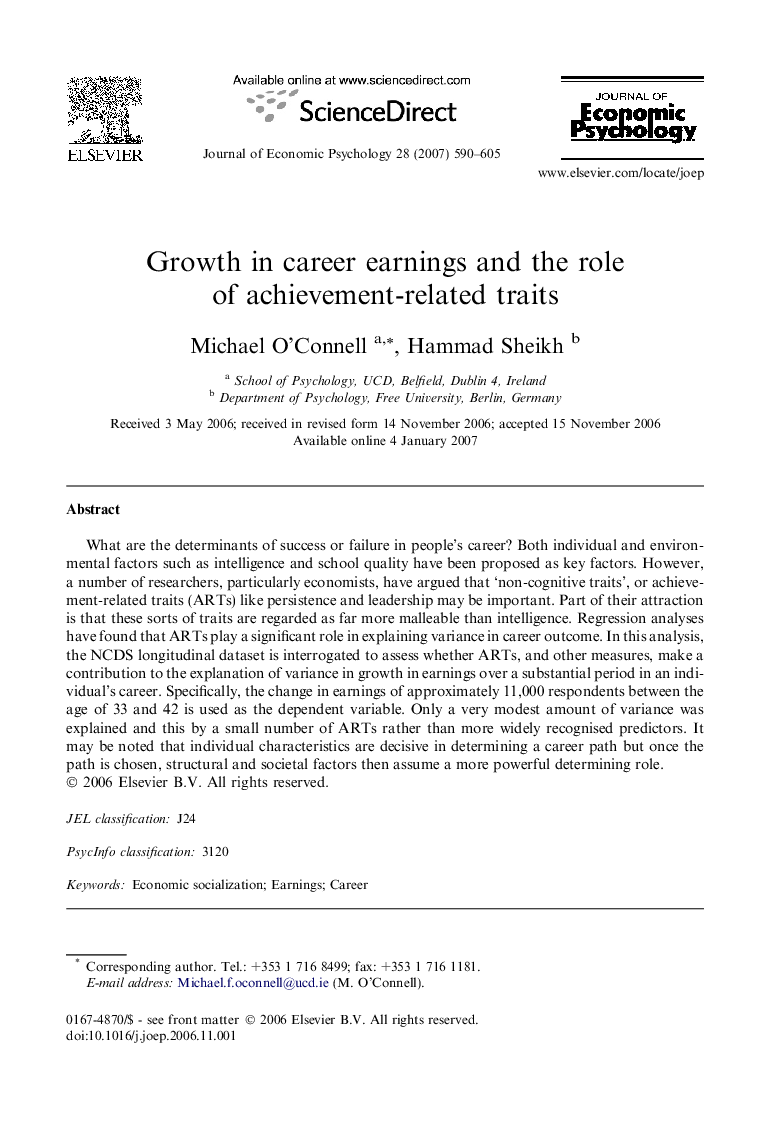| Article ID | Journal | Published Year | Pages | File Type |
|---|---|---|---|---|
| 885392 | Journal of Economic Psychology | 2007 | 16 Pages |
What are the determinants of success or failure in people’s career? Both individual and environmental factors such as intelligence and school quality have been proposed as key factors. However, a number of researchers, particularly economists, have argued that ‘non-cognitive traits’, or achievement-related traits (ARTs) like persistence and leadership may be important. Part of their attraction is that these sorts of traits are regarded as far more malleable than intelligence. Regression analyses have found that ARTs play a significant role in explaining variance in career outcome. In this analysis, the NCDS longitudinal dataset is interrogated to assess whether ARTs, and other measures, make a contribution to the explanation of variance in growth in earnings over a substantial period in an individual’s career. Specifically, the change in earnings of approximately 11,000 respondents between the age of 33 and 42 is used as the dependent variable. Only a very modest amount of variance was explained and this by a small number of ARTs rather than more widely recognised predictors. It may be noted that individual characteristics are decisive in determining a career path but once the path is chosen, structural and societal factors then assume a more powerful determining role.
